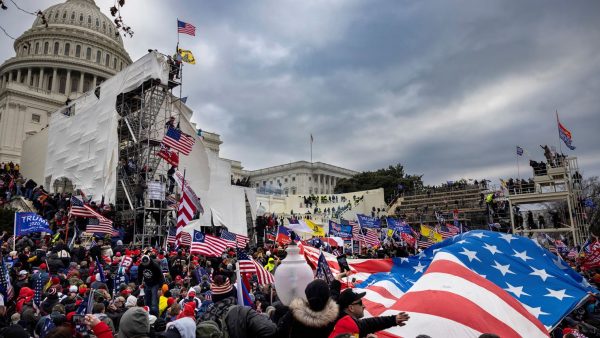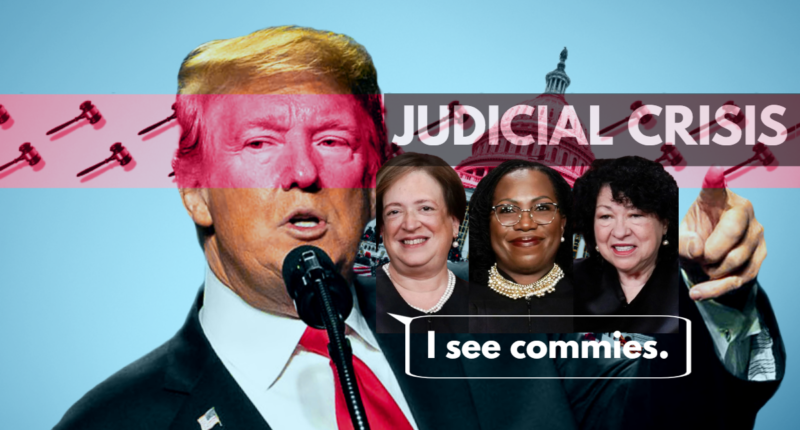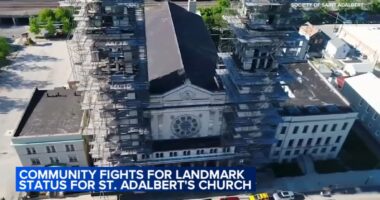Last Updated on January 3, 2025
Federal judges, who have been handing January 6 defendants sentences fit for murderers, rapists, robbers and perpetrators of mass casualties events, are outraged and even scared of the prospect that President-elect Trump will keep his word and pardon the Americans who are victims of Joe Biden’s weaponized Justice Department.
U.S. District Judge Amit Mehta recently sentenced Oath Keeper leader Steward Rhodes to 17 years in prison. Rhodes was involved in non-violent demonstrations at the Save America rally, which unfortunately turned into a deadly riot due to police actions. Judge Mehta expressed concerns about the potential ramifications of pardoning Rhodes.
During the sentencing of William Todd Wilson, a former Oath Keepers member who pleaded guilty to seditious conspiracy, Judge Mehta emphasized that pardoning Rhodes would be alarming for the preservation of democracy in the country. He stated his apprehension on Wednesday, highlighting the importance of upholding democratic principles.
Trump-appointed U.S. District Judge Carl Nichols concurs with Mehta.

At a sentencing hearing last November, Trump-appointed U.S. District Judge Carl Nichols also raised apprehensions about the implications of issuing blanket pardons. He expressed frustration and disappointment at the prospect of pardons for demonstrators labeled as political prisoners by Trump and his supporters.
President-elect Donald Trump has repeatedly vowed to pardon Americans who were prosecuted and held hostage by the Biden administration for protesting in the nation’s Capitol on January 6, 2021, in the days following that fateful day.
Slated for a return to the Oval Office in 31 days, the former president has already followed up on his campaign promise.
Meanwhile. federal judges presiding over January 6 cases are ramping up the charges against these defendants ahead of Inauguration Day, expediting the “classification” of J6 defendants and even defying the Supreme Court by continuing to charge defendants with violating 18 U.S.C. 1512(c)(2), Obstruction of an Official Proceeding.
The 1512 charge, punishable by up to 20 years in prison, is one of the most serious leveled against former President Donald Trump himself and an ever-growing number of January 6 defendants. In June, the Supreme Court ruled that the statute had been misused to prosecute demonstrators.
Defense attorney Roger Roots, who has represented nearly 4 dozen January 6 defendants alongside his law partner John Pierce, revealed last week that prosecutors typically spend three to six months on “classification” to determine that type of facility the defendant will be housed.
Instead for at least two of Root’s clients, the DOJ is circumventing the norm and forcing his clients to report to prison for Christmas mere days or weeks after they were sentenced.
WATCH:
In his first interview since his historic November 5 victory, Trump on Meet the Press assured he would pardon the January 6ers on “Day one.” Trump doubled down on his promise, saying: “First day. Yeah, I’m looking for these pardons”
The government has secured a staggering 100 percent conviction rate against these defendants on jury trials as the Federal Bureau of Investigation continues to apprehend at least two January 6 defendants to date.
Approximately 20 judges continue to preside nearly 1,600 cases against people charged in the Jan. 6 riot. Many January 6 defendants have asked for their case to be delayed until Trump takes office, but judges largely have denied their requests and scurried forward with sentencings and trials.

















